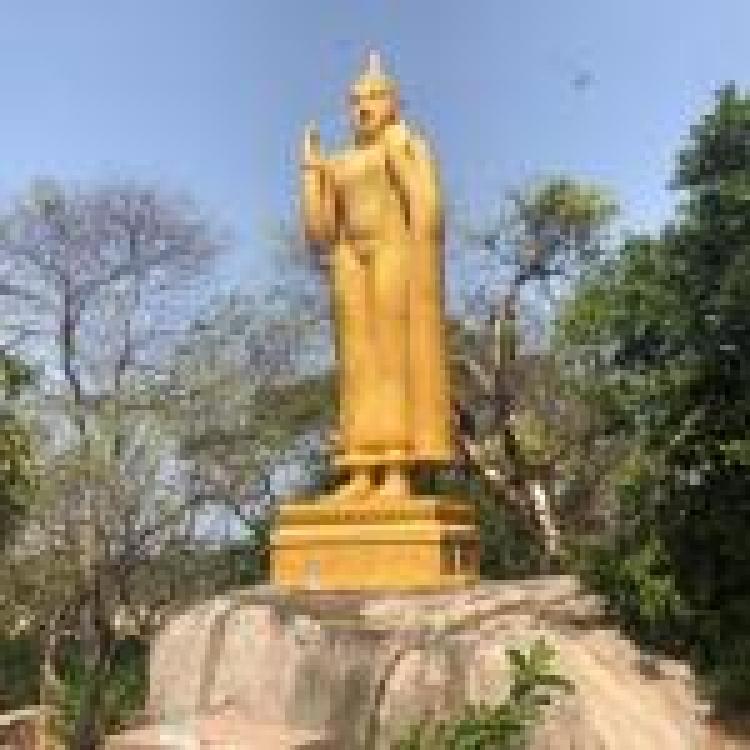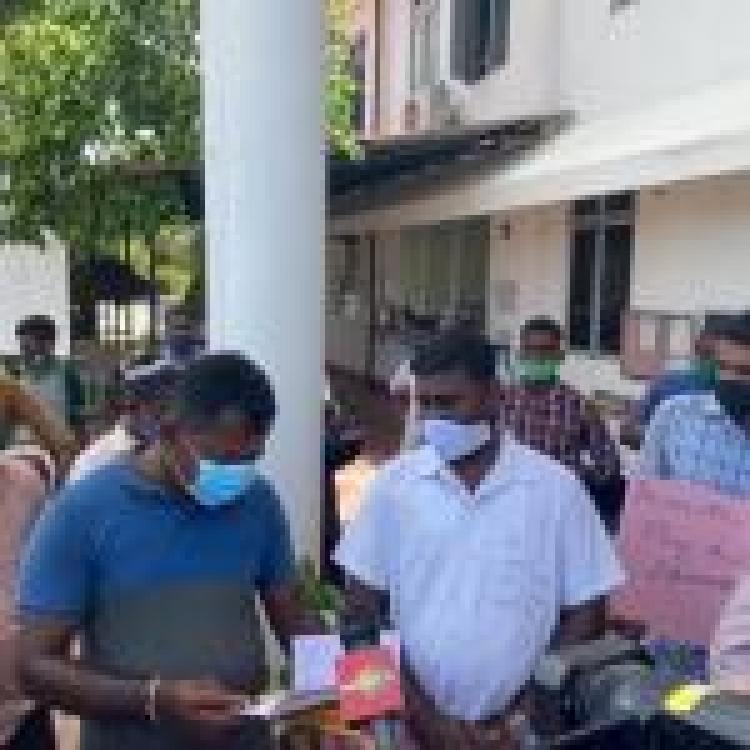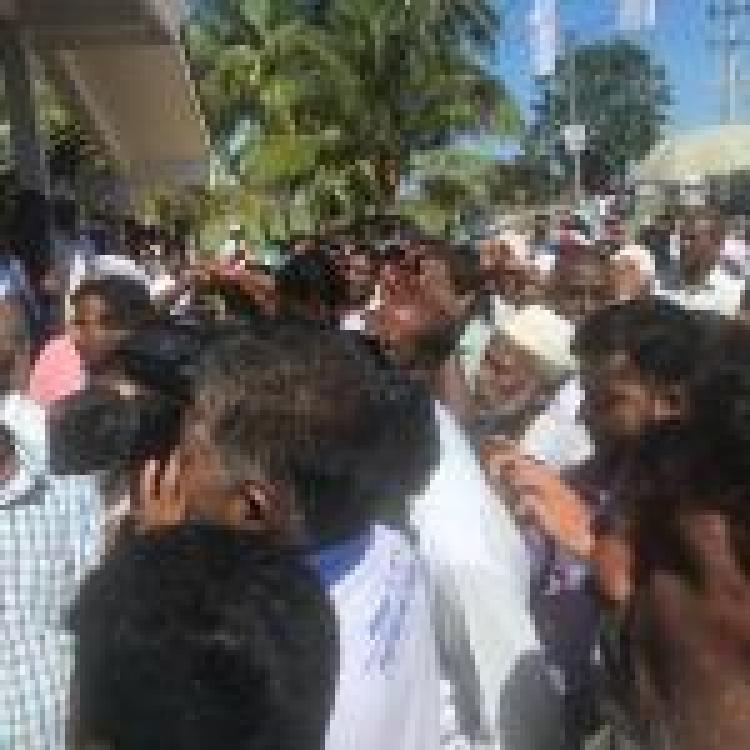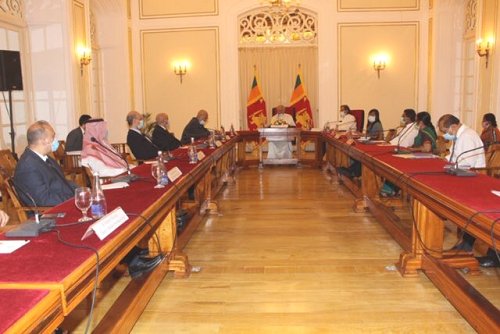
Photograph: Palestinan ambassador Zuhair Hamdallah Zaid is among officials who met with Sri Lanka's foreign minister earlier this month
The Sri Lankan government has criticised Israel for “settlement expansion” in the West Bank and called for the implementation of UN resolutions regarding the “inalienable rights of the Palestinian people to statehood and the attainment of a two State solution,” even whilst Colombo continues its own Sinhala colonisation of the Tamil North-East.
In a statement delivered to the UN Human Rights Council last week, Sri Lanka said it expresses “deep concern on, among other matters, the issue pertaining to settlement expansion, particularly the recent decision by the Government of Israel to proceed with the annexation of significant parts of the occupied West Bank”.
“We echo the alarm expressed by the Special Rapporteur on the situation of human rights in the Palestinian Territory occupied since 1967 and the UN Special Coordinator for the Middle East Peace Process in this connection, and join international calls to urge the Government of Israel to halt any annexation activities, which would have far reaching and devastating repercussions,” it added.
“Sri Lanka observes that indiscriminate actions and disproportionate reactions against unarmed civilians will only make realizing an enduring peace a distant reality,” the statement concluded.
“Two states living side by side in harmony with one another within secure borders, is key to achieving long term security, peace and prosperity.”
Sri Lanka’s statement comes just weeks after president Gotabaya Rajapaksa announced the formation of a task force to preserve “archaeology” in the Eastern province, a move criticised by many Tamils as providing cover for Sinhalisation of the region. For decades state-sponsored Sinhala settlements have been constructed in the Tamil homeland, with areas in the North-East coming under more intense efforts in recent months.
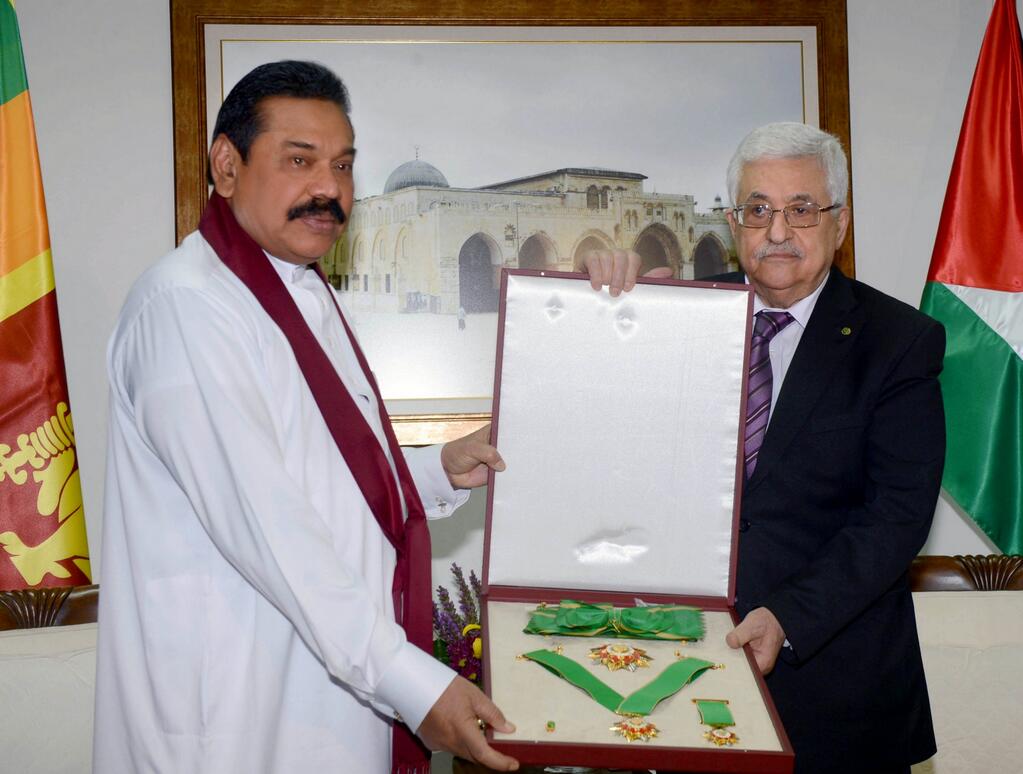
File photograph: Abbas meets Rajapaksa in 2014
Sri Lanka’s support for Palestinian statehood though is not new, with Colombo having consistently backed the creation of a Palestinian state. Mahinda Rajapaksa, who oversaw the massacre of tens of thousands of Tamil civilians as Sri Lankan president in 2009, was lauded by Palestinian president Mahmud for “achieving peace and stability in the country” during a 2012 visit to the island. In 2014, Rajapaksa visited Palestine, where he was awarded the ‘Star of Palestine’, the highest honour award by the Palestinian state. A road in Ramallah was also named after the accused war criminal in 2007.
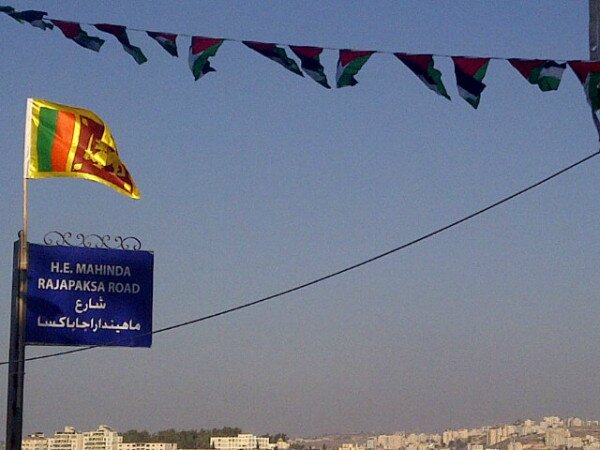
Photograph: Rajapaksa road in Ramallah
In March 1997 former Palestinian leader Yasser Arafat visited Sri Lanka, where he was met by President Chandrika Kumaratunga with a 21-gun salute, reserved for visiting heads of state.
The visit came as Sri Lanka’s conflict raged and shortly before what was then Colombo’s largest military offensive against the Liberation Tigers of Tamil Eelam.
After meeting with Kumaratunga, Arafat called for peace in Sri Lanka and offered to mediate.
“I am under [sic] the disposal of the friendly people of Sri Lanka,” AFP quoted Arafat as telling reporters.
“We are now facing a new order. The order of the new order is peace. I offer all my effort and support for you to reach a settlement,” he said.
Asked if he was willing to be a mediator between Kumaratunga’s government and the LTTE, he replied: “Yes, I am ready. I am offering it officially now.”


